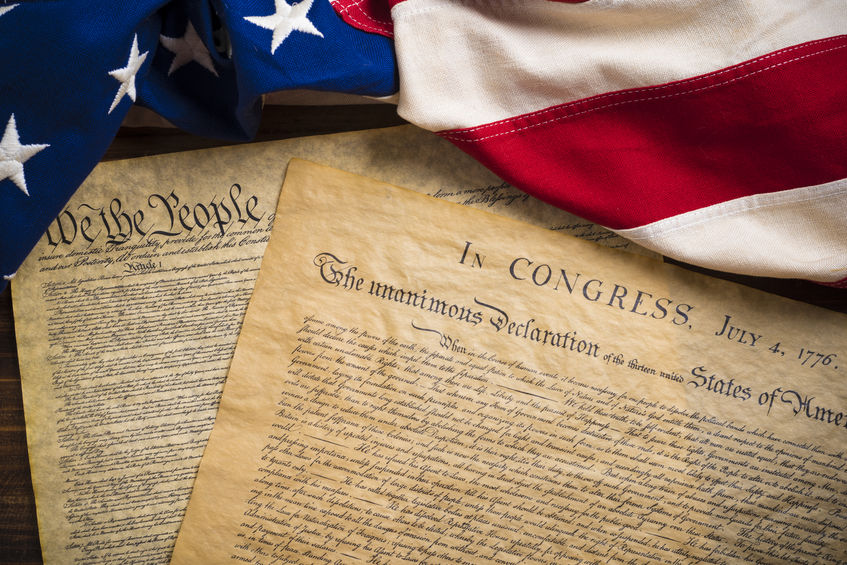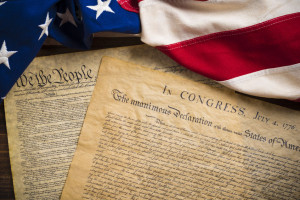
by Dan | Nov 14, 2018 | Uncategorized
 Jamal Khashoggi, a Washington Post reporter who focused a great deal of his work on the Middle East (and Saudi Arabia in particular), was recently killed in the line of his journalistic duties. However, media explanations and political narratives surrounding his death have created a great deal of confusion both in the U.S. and abroad.
Jamal Khashoggi, a Washington Post reporter who focused a great deal of his work on the Middle East (and Saudi Arabia in particular), was recently killed in the line of his journalistic duties. However, media explanations and political narratives surrounding his death have created a great deal of confusion both in the U.S. and abroad.
Regardless of how this situation concludes, a serious implication has emerged from what increasingly referred to as a scandal: the freedom of the press is even less “free” than we previously assumed, particularly when a well-known journalist reporting for an internationally-recognized news organization faces the same, unfortunate demise as hundreds of other dissident publishers in countries around the world.
Khashoggi’s death ought to be a somber reminder to citizens around the world that the practices of kidnapping, torturing and killing journalists are not exclusive to small countries with authoritarian regimes. Violence against journalists is increasingly commonplace in today’s society, and without these media gatekeepers holding power accountable (because they’re literally dying for doing this crucial job), who else will hold our political leaders responsible to citizens?
What other implications does Khashoggi’s death hold for the future of the free press in the U.S. and abroad? Let’s unpack what’s happening in the status quo:
Journalists Are in Danger
Between 1992 and 2018, over 1,320 journalists worldwide have been killed while on the job, according to the Committee to Protect Journalists. While some of these deaths involved journalists reporting from dangerous regions, some, like Khashoggi, have been murdered by people who [violently] disagree with the subject matters and angles these journalists write about.
It doesn’t help matters that President Trump recently praised a politician for body-slamming a journalist in Montana. During a time when harassment (physical and digital) and violence against journalists is on the rise, it’s imperative that citizens remain committed to civil, nonviolent discourse instead of encouraging and even applauding acts of physical violence against those with whom they disagree.
We Must Protect Our Free Press
Kashshoggi’s death does not have to spell doom for the future of the free press in the U.S. and abroad. As tragic as this event was, it also serves as an important reminder to the public that we must reinforce respect for the free press, both at home and abroad. Even when we disagree with or feel offended by something published by a reporter and/or news organization, harassment and violence is never the answer – rational discourse and a mindset of “let’s agree to disagree” are paramount.
To uphold our First Amendment freedoms – for everyday citizens and hardworking journalists alike – visit our website to learn more about what we’re doing to preserve First Amendment right for all.

by Dan | Oct 24, 2018 | Uncategorized
 According to the Student Press Law Center, a 1969 Supreme Court decision contended that, “it can hardly be argued that either students or teachers shed their constitutional right to freedom of speech at the schoolhouse gate.” Since this proclamation was made, there have nevertheless remained many obstacles for student journalists in high schools across the U.S.
According to the Student Press Law Center, a 1969 Supreme Court decision contended that, “it can hardly be argued that either students or teachers shed their constitutional right to freedom of speech at the schoolhouse gate.” Since this proclamation was made, there have nevertheless remained many obstacles for student journalists in high schools across the U.S.
In some cases, the administrators prevail due to First Amendment exemptions for private schools, as the law may only prohibit public school officials from suppressing students’ free speech and press freedoms. School-sponsored publications may also be subjected to censorship in some cases, but it varies from situation to situation.
Do you believe the First Amendment should apply equally to student journalists at the high school level as it does to professional journalists? Let’s explore what’s going on in the status quo:
Legal Precedents
In 1988, the Supreme Court’s Hazelwood School District v. Kuhlmeier decision allowed administrators to censor some school-sponsored content at their own discretion. For instance, school yearbooks have been subjected to censorship practices with the justification that they are “non-public forums,” and thus, not protected by the First Amendment.
Compared to student journalists at public colleges and universities, high school student journalists ultimately have fewer legal protections and face significantly more censorship when they attempt to publish potentially controversial material in their school newspapers and other publications.
Attempts to Limit Student Reporting Efforts
There have been many attempts by administrators to completely censor, alter or restrict high school journalists’ reporting efforts. For example, high schoolers in Vermont recently fought for their First Amendment freedoms when an interim principal tried to censor a report about a guidance counselor who had falsified student transcripts, intimidated employees, and revealed a student’s private information to another party without the student’s prior knowledge and consent.
This is just one of many instances of administrators trying to prevent their students from engaging in their First Amendment freedoms. Do you believe that high schoolers should have the same free press rights as their professional counterparts? The legal battles are far from over, but time and politics will determine if youth ought to have equal access to their First Amendment rights as adult journalists do.

by Dan | Oct 10, 2018 | Uncategorized
 Why does “fake news” get so much attention in the press these days? Tabloids and media rumors have been around for centuries, but the spread of “fake news” is a relatively recent phenomenon that has become a serious problem thanks to the instantaneous sharing capabilities of email, texts and social media.
Why does “fake news” get so much attention in the press these days? Tabloids and media rumors have been around for centuries, but the spread of “fake news” is a relatively recent phenomenon that has become a serious problem thanks to the instantaneous sharing capabilities of email, texts and social media.
Is “fake news” as big a threat to our First Amendment freedoms as some people proclaim it to be? Let’s unpack the potential implications:
Freedom of the Press
During a time when newspapers and other media organizations are struggling to stay afloat financially, it’s increasingly concerning to witness how fake news stories with clickbait headlines are getting more engagement and shares on social media than legitimate news stories. This poses a serious threat to the freedom of the press clause in the First Amendment because fake news stories distort public perceptions about real-life events, which has led to problematic consequences such as:
- Increased public distrust of media organizations
- Lower subscription rates for credible news outlets
- Higher rates of censorship, harassment and even violence against journalists
- Alarming incidents of people acting upon fake news stories, such as the infamous “Pizzagate” scandal
Unfounded “Fake News” Accusations
Another major concern related to fake news and the First Amendment is the prominence of politicians, corporate executives, and other societal leaders referring to news stories they disagree with as “fake news,” regardless of the truthful nature of the story in question. By dismissing unfavorable news stories as “fake,” these individuals — many of whom have large followings on social media and in real life — are contributing to negative public sentiment towards journalists and media organizations.
Furthermore, discrediting news stories and/or organizations by labeling them as “fake” is making it increasingly difficult for members of society to discern between fact, “alternative facts,” and fiction. This only furthers public mistrust in otherwise highly credible news outlets and allows an individual’s persuasiveness to outweigh factual reporting published by diligent journalists.
To help combat the growing issue of fake news in our society, be sure to read through FactCheck.org’s guidelines for detecting fake news stories before sharing a questionable news story on social media or dismissing something you disagree with as “fake news.”

by Dan | Oct 3, 2018 | Uncategorized
 Many people have been getting fired from their jobs recently due to content they posted on their personal social media accounts. Some of the well-known instances of someone losing a job due to their expressions on social media include:
Many people have been getting fired from their jobs recently due to content they posted on their personal social media accounts. Some of the well-known instances of someone losing a job due to their expressions on social media include:
- Former Guardians of the Galaxy director James Gunn was fired for 2008-2009 era tweets containing offensive messages about race, women, the Holocaust and 9/11.
- Former PR executive Justine Sacco, “jokingly” tweeted about not getting AIDS during a trip to Africa because she was white (she was fired before her plane landed after the tweet went viral).
- A former nurse in Texas was fired for violating HIPAA by posting about a patient with measles in an anti-vaccination group in which she was a member.
There are many other instances of people losing their jobs over social media posts, but does this actually violate their rights to freedom of speech and expression? Let’s unpack some of the First Amendment issues at hand:
Free Speech in a Private Workplace
As the American Bar Association points out, “if this use of economic power to punish speech sounds un-American, remember that the First Amendment limits only the government’s ability to suppress speech.” This means that individuals employed by private companies could be subjected to restrictive social media policies as conditions for their continued employment and possibly fired for posting anything that could hurt the company’s reputation — even if you don’t post anything about the company or people working there at all.
Union members may have greater freedom when it comes to posting whatever they want on social media without fearing retribution from an employer due to union negotiations and contracts prohibiting the termination of an employee for reasons related to social media activity. However, this is not guaranteed and if you’re considered an “at-will” employee, then the First Amendment likely will not protect you if you’re fired as a result of something you posted or even shared on social media.
Free Speech for Public Employees
Since public employees work for the government, most of them are given full First Amendment rights to freedom of speech in the workplace and beyond. As WorkplaceFairness.org explains, public employees can generally not be terminated from their positions unless their speech relates to a matter of “public concern”. But even this is a murky gray area that courts have yet to adequately and thoroughly define.
Watch What You Post on Social Media
To minimize the possibility of losing your job over what you post on social media, there are a few things you should do to lower your risk of retaliation:
- Delete any old posts that could be considered inflammatory or offensive.
- Limit how far back people can view your posts on your social profiles.
- Don’t post anything online that you wouldn’t want to see connected to your name.
- Increase your social media privacy and security settings.
- Review your employer’s social media policy for employees (if one exists).

by Dan | Sep 12, 2018 | Uncategorized
 According to Roger McNamee, filter bubbles are the “most important [tools] used by Facebook and Google to hold user attention” because they lead to an “unending stream of posts that confirm each user’s existing beliefs.” In other words, filter bubbles arise from online algorithms that are tailored to each individual user based on what they have previously searched for. This may seem like a good idea for creating a more customized web browsing experience, but when it comes to politics and democracy itself, filter bubbles can have devastating consequences.
According to Roger McNamee, filter bubbles are the “most important [tools] used by Facebook and Google to hold user attention” because they lead to an “unending stream of posts that confirm each user’s existing beliefs.” In other words, filter bubbles arise from online algorithms that are tailored to each individual user based on what they have previously searched for. This may seem like a good idea for creating a more customized web browsing experience, but when it comes to politics and democracy itself, filter bubbles can have devastating consequences.
Since our upcoming National Symposium focuses on the subject of political divisions in America today, let’s explore the role online filter bubbles play in political polarization:
Shutting Out Dissent
Filter bubbles are dangerous because they create the illusion that everyone agrees with our thoughts and opinions online. If we disagree with someone’s political views on social media, we can simply block or unfollow them, which means we won’t have to read any dissenting opinions, let alone engage with others who disagree with us in any way. This is problematic because it can further entrench our values and ideas without ever having to critically question why we believe what we believe or consider alternative viewpoints.
If we are not exposed to other ideas and perspectives beyond our own beliefs, then this artificial absence of contrary evidence or opinions can trick us into thinking we must be right because no counter-argument seems to exist. In reality, we simply don’t see those counter-arguments. The algorithms that determine what we see first (or at all) in our social media and news feeds sacrifice exposure to many possible views in exchange for a highly subjective web browsing experience related to our search histories.
Be Open to New Perspectives
To avoid getting caught in a filter bubble and boost your own awareness of others’ views, it’s important to consume news and other informative content from a variety of websites and news platforms instead of only going to one source for all your information. Additionally, you should embrace opportunities to engage with others who disagree with you – online and offline – in order to understand what “the other side” believes and critically consider your own beliefs, rather than accepting them as innately true.
It’s not easy to accept the possibility that viewpoints contradicting your own could be just as valid as your views, but it’s a crucial component of becoming a well-rounded and informed citizen, rather than giving in to political polarization and attacking the “other side” just because you disagree with them. The old adage of “let’s agree to disagree” is relevant here – you may never come eye-to-eye with someone online, but rather than getting trapped in a filter bubble, actively reach out and constructively engage with others to bridge divides and begin the healing process for our deeply polarized nation.

by Dan | Aug 23, 2018 | Uncategorized
 James Madison once said, “What spectacle can be more edifying or more seasonable, than that of Liberty and Learning, each leaning on the other for their mutual and surest support?” With our Founding Fathers’ wisdom in mind, we couldn’t be more excited to share new and exciting details about our upcoming national symposium with you! This year’s theme involves “E. Pluribus Unum or Divided?” – in which we’ll explore the current state of political polarization in the U.S., along with research-proven strategies and expert advice guiding discussions to help us overcome divisions amongst our fellow citizens.
James Madison once said, “What spectacle can be more edifying or more seasonable, than that of Liberty and Learning, each leaning on the other for their mutual and surest support?” With our Founding Fathers’ wisdom in mind, we couldn’t be more excited to share new and exciting details about our upcoming national symposium with you! This year’s theme involves “E. Pluribus Unum or Divided?” – in which we’ll explore the current state of political polarization in the U.S., along with research-proven strategies and expert advice guiding discussions to help us overcome divisions amongst our fellow citizens.
What you need to know about the Symposium
This year’s symposium will take place at the National Constitution Center in Philadelphia. We have many amazing speakers and discussion panels lined up, and you can get a head start on the event by attending our exclusive VIP reception at the Wyndham Hotel on Friday, September 14th.
Since our main focus is overcoming political divisions and developing new, constructive ways to interact with citizens in our communities and online, panels will include speeches from experts and opportunities for attendees to discuss the most pressing issues affecting our First Amendment rights. The symposium will begin at 9am and conclude at 5pm on Saturday, September 15th, so be sure to sign up today to secure your spot at this once-in-a-lifetime event.
Student can enter our Instagram contest
George Washington once said, “A primary object should be the education of our youth in the science of government. In a republic, what species of knowledge can be equally important? And what duty more pressing than communicating it to those who are to be the future guardians of the liberties of the country?”
In other words, students of today are the protectors of our First Amendment freedoms in the future, which is why we want to acknowledge and reward civic-minded high school and college students for their efforts. If you are actively making a difference in your community and want to learn more about how you can preserve First Amendment rights for everyone, then you won’t want to miss our Instagram contest this year!
We’re giving away free tickets to the symposium for students who demonstrate their commitment to unity by following First Amendment Voice on Instagram and submitting photos with #FAVUnity in the caption (be sure to explain how you’re bridging divides and bringing people closer together, too!). One student grand prize winner will receive free admission to our VIP Reception at the Wyndham Hotel on Friday evening before the symposium begins, so enter our contest any time before September 1st for a chance to win big!
Plan your visit to this year’s Symposium
The 3rd annual symposium is just around the corner, so click here to sign up to attend the event. Performing our civic duties involves so much more than just voting, so come out to Philadelphia and engage with like-minded citizens to learn about the latest and most successful strategies for protecting our Constitutional rights for all Americans.

 Jamal Khashoggi, a Washington Post reporter who focused a great deal of his work on the Middle East (and Saudi Arabia in particular), was recently killed in the line of his journalistic duties. However, media explanations and political narratives surrounding his death have created a great deal of confusion both in the U.S. and abroad.
Jamal Khashoggi, a Washington Post reporter who focused a great deal of his work on the Middle East (and Saudi Arabia in particular), was recently killed in the line of his journalistic duties. However, media explanations and political narratives surrounding his death have created a great deal of confusion both in the U.S. and abroad.

 According to the
According to the 
 Why does “fake news” get so much attention in the press these days? Tabloids and media rumors have been around for centuries, but the spread of “fake news” is a relatively recent phenomenon that has become a serious problem thanks to the instantaneous sharing capabilities of email, texts and social media.
Why does “fake news” get so much attention in the press these days? Tabloids and media rumors have been around for centuries, but the spread of “fake news” is a relatively recent phenomenon that has become a serious problem thanks to the instantaneous sharing capabilities of email, texts and social media.
 Many people have been getting fired from their jobs recently due to content they posted on their personal social media accounts. Some of the well-known instances of someone losing a job due to their expressions on social media include:
Many people have been getting fired from their jobs recently due to content they posted on their personal social media accounts. Some of the well-known instances of someone losing a job due to their expressions on social media include:
 According to Roger McNamee,
According to Roger McNamee, 
 James Madison once said, “What spectacle can be more edifying or more seasonable, than that of Liberty and Learning, each leaning on the other for their mutual and surest support?” With our Founding Fathers’ wisdom in mind, we couldn’t be more excited to share new and exciting details about our upcoming national symposium with you! This year’s theme involves “E. Pluribus Unum or Divided?” – in which we’ll explore the current state of political polarization in the U.S., along with research-proven strategies and expert advice guiding discussions to help us overcome divisions amongst our fellow citizens.
James Madison once said, “What spectacle can be more edifying or more seasonable, than that of Liberty and Learning, each leaning on the other for their mutual and surest support?” With our Founding Fathers’ wisdom in mind, we couldn’t be more excited to share new and exciting details about our upcoming national symposium with you! This year’s theme involves “E. Pluribus Unum or Divided?” – in which we’ll explore the current state of political polarization in the U.S., along with research-proven strategies and expert advice guiding discussions to help us overcome divisions amongst our fellow citizens.



